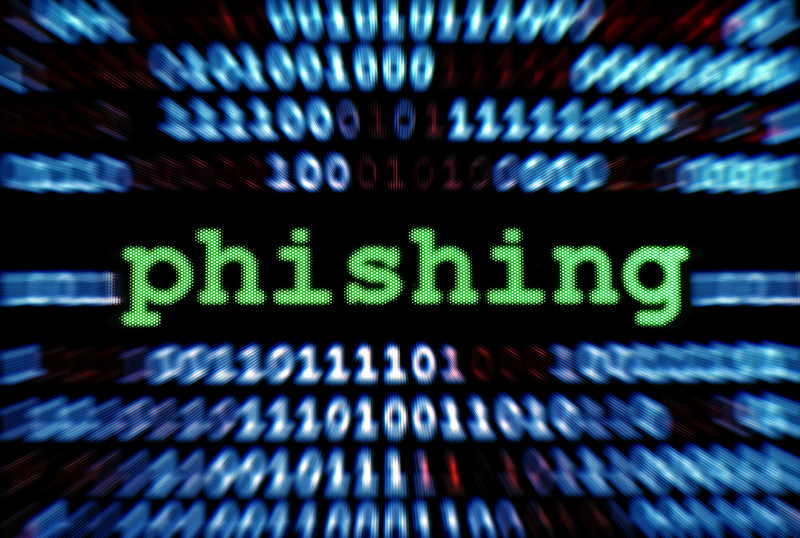In the labyrinthine landscape of cybersecurity threats, one form of attack stands out for its precision and cunning: spear phishing. A deceptive art form that targets individuals or organizations with meticulously tailored emails or messages, spear phishing represents a potent weapon in the arsenal of cybercriminals. This “deep dive” explores the multifaceted realm of spear phishing, dissecting its anatomy, elucidating its significance, and probing the complexities that make it a paramount concern for modern cybersecurity.
Anatomy of Spear Phishing: Precision in Deception
At its core, spear phishing leverages deception as its modus operandi. Unlike generic phishing attempts that cast a wide net to snare as many victims as possible, spear phishing is a laser-focused approach that selects its targets with surgical precision. It capitalizes on the art of personalization, delving into the minutiae of an individual’s or an organization’s online presence to craft messages that appear disarmingly authentic.
One of the most potent weapons in the spear phisher’s arsenal is information reconnaissance. Cybercriminals scour social media profiles, professional networking sites, and public databases to gather intelligence on potential targets. Birthdays, job titles, affiliations, recent activities – every fragment of data is meticulously pieced together to create an illusion of familiarity and legitimacy in their communications. This method of attack preys on the human instinct to trust someone who seems to know us, leading victims to inadvertently divulge sensitive information or fall for malicious schemes.
The Essence of Deception: Why Spear Phishing Matters
Spear phishing matters not only due to its ingenious execution but also due to the devastating consequences it can inflict. There are several reasons why this form of attack occupies a central role in the cybersecurity discourse.
- Tailored Deception: The personalized nature of spear phishing makes it incredibly difficult to discern from legitimate communication. Traditional security measures like spam filters often prove ineffective against these attacks, as the messages do not exhibit the typical hallmarks of generic phishing emails.
- Data Breaches and Espionage: Spear phishing is a potent tool for data breaches and corporate espionage. Cybercriminals can use these attacks to gain access to sensitive company data, financial information, intellectual property, and trade secrets. The breach might not even be immediately noticeable, giving attackers ample time to extract valuable data.
- Precursor to Advanced Attacks: Often, spear phishing serves as a precursor to more advanced attacks. Once cybercriminals establish a foothold within an organization through a successful spear phishing campaign, they can pivot to more sophisticated tactics like malware insertion, lateral movement, and privilege escalation.
- Ransomware Delivery: Spear phishing can be the gateway to delivering ransomware – malicious software that encrypts a victim’s data until a ransom is paid. By targeting key personnel within an organization, cybercriminals can maximize the impact of their ransomware attacks and increase the likelihood of payment.
- Reputation and Financial Loss: Falling victim to spear phishing can lead to substantial financial losses and reputational damage. Organizations can incur costs related to incident response, legal actions, regulatory fines, and customer compensation. Moreover, the loss of customer trust can have far-reaching consequences.
- Nation-State Threats: Spear phishing is also a favored technique of nation-state actors engaged in espionage or cyber warfare. By targeting individuals with access to sensitive government or military information, these attackers can potentially compromise national security.
Importance in Depth: Probing the Nuances
Psychological Manipulation: One of the most intriguing aspects of spear phishing is its heavy reliance on psychological manipulation. The attackers exploit cognitive biases and emotions to prompt individuals to act against their better judgment. Fear, urgency, curiosity, and even the promise of rewards are all tools that spear phishers deftly employ to elicit specific responses.
Social Engineering: Spear phishing exemplifies the power of social engineering, the manipulation of individuals into divulging confidential information or performing actions that compromise security. By exploiting the trust inherent in personal relationships or professional affiliations, attackers can infiltrate even the most fortified organizational perimeters.
Whaling Attacks: Whaling attacks are a subset of spear phishing that target high-profile individuals such as executives, CEOs, and other key decision-makers. These individuals often have access to critical information and the authority to make impactful decisions. By successfully compromising a “big fish,” attackers can gain a treasure trove of sensitive data and potentially influence organizational strategies.
Evolving Tactics: Spear phishers are not static; they continuously evolve their tactics. They stay current with technological trends, adapting their messages to align with ongoing events or industry shifts. For instance, during the COVID-19 pandemic, there was a surge in spear phishing campaigns related to remote work and health concerns.
Countermeasures and Mitigation: Mitigating spear phishing threats demands a multifaceted approach. Technological defenses, such as advanced email filtering, anomaly detection, and user behavior analytics, play a crucial role. However, education and awareness are equally vital. Training individuals to recognize the hallmarks of spear phishing, encouraging skepticism, and imparting the skills to verify suspicious communications can fortify an organization’s defenses.
Conclusion
In the ever-expanding realm of cyber threats, spear phishing shines as a testament to the ingenuity of cybercriminals and their capacity to exploit human psychology. This “deep dive” into spear phishing’s intricacies underscores its significance in the cybersecurity landscape. Its precision, tailoring, and ability to deceive make it a formidable weapon that threatens individuals, organizations, and even national security. As technology advances and attackers refine their techniques, understanding, awareness, and proactive defense mechanisms become pivotal in safeguarding against the insidious threat of spear phishing.













